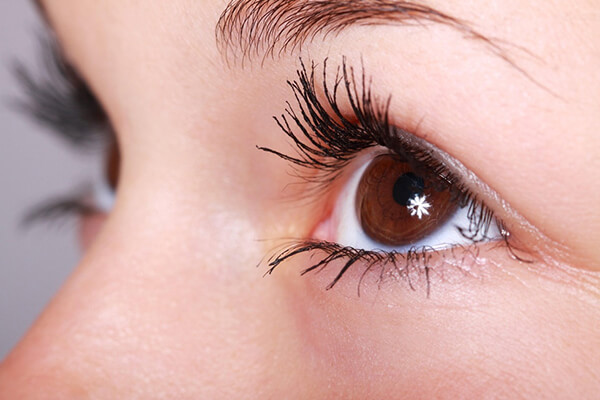While smoking is universally considered harmful, there’s a widespread belief that drinking in moderation is beneficial for both body and mind. However, alcohol is classified as a Group 1 carcinogen by the World Health Organization, placing it in the same category as tobacco and fine particulate matter. Research shows that while women who consume one alcoholic drink a day may reduce their risk of developing diabetes, there are no other known health benefits associated with alcohol consumption. Moving forward, let’s explore the negative health impacts that drinking can have.
Negative Effects on the Brain

Alcohol can shorten telomeres. Telomeres shorten as we age and are key indicators of the aging process. When telomeres become shorter, the risk of developing diseases such as Alzheimer’s, diabetes, and heart disease increases. One study found that consuming 10 ml of alcohol daily caused the brain of a person in their 50s to age by about six months compared to those who abstained. The more alcohol consumed, the greater the impact.
Causes Liver Disease and Raises Blood Sugar

Alcohol is especially harmful to the liver. Repeated drinking can lead to fatty liver, alcoholic hepatitis, cirrhosis, and even liver cancer. It can also cause gastrointestinal diseases like esophageal, gastric, and colon disorders, as well as hematopoietic disorders accompanied by anemia. If you must drink, it’s advisable to consume plenty of water to prevent dehydration and slow alcohol absorption.
Harmful Effects on the Eyes

The eyes are one of the body parts most vulnerable to alcohol. Drinking causes the tiny blood vessels in the eyes to expand, which can lead to dryness by reducing moisture and lowering the cornea’s immune response. This dryness can make the cornea susceptible to injury from minor impacts, potentially resulting in secondary conditions such as keratitis. Long-term alcohol consumption significantly increases the thickness of the choroid, the layer of tissue beneath the retina, which adversely affects vision.
Drinking in Cold Weather is Risky

Cold weather combined with excessive drinking raises the risk of atrial fibrillation. Alcohol can cause structural changes in the heart, and when combined with low winter temperatures, it negatively impacts cardiovascular health. People with underlying conditions like hypertension, diabetes, or kidney disease are at even greater risk. Atrial fibrillation is closely linked to strokes, so those with preexisting conditions should be especially cautious.
Why Alcohol Causes Stomach Pain

After a night of drinking, many people suffer from stomach pain. Alcohol suppresses the movement of the esophagus and weakens the function of the sphincter between the esophagus and stomach. This can lead to acid reflux, causing inflammation in the esophagus and a burning sensation in the chest. Increased gastric acid secretion weakens the stomach lining’s protective mechanisms, raising the risk of gastritis and stomach ulcers due to damage to the stomach wall.
Increased Risk of Dementia

Research shows that the risk of dementia increases with alcohol consumption. While earlier studies suggested that light drinking might protect against dementia, recent findings indicate that there is no safe amount of alcohol that does not raise the risk. Heavy drinking increases the likelihood of developing dementia, and even light to moderate drinking can elevate dementia rates. Experts unanimously agree that no amount of alcohol benefits brain health.
Negative Effects on Fetal Development

Both pregnant women and male alcohol consumption negatively affect fetal health. A 2021 study conducted in China analyzed over 500,000 couples and found that even when women abstained from alcohol, men who drank before conception had a higher likelihood of giving birth to babies with congenital diseases. Another study found that men who consumed more than 50 ml of alcohol daily during the three months before conception were nearly three times more likely to have a child with congenital heart defects.
Higher Risk of Knee Osteoarthritis

Alcohol consumption increases inflammation in the body, which can raise the risk of knee osteoarthritis. A study of adults over 50 found that those with higher alcohol dependence had up to 1.5 times greater prevalence of the condition. Alcohol not only triggers inflammation but also raises blood sugar, making it particularly harmful for older adults.
Caution for Those Who Exercise

That refreshing post-workout combo of fried chicken and beer may feel satisfying but can negatively impact your fitness goals. Alcohol consumption can reduce protein synthesis by up to 20% for 24 hours, hindering muscle growth. Continued drinking can also impair endurance and performance—key components of athletic ability.
Why Heavy Drinkers Appear Older

As mentioned earlier, alcohol shortens telomeres, which are closely linked to cellular aging. Shorter telomeres reduce cells’ regeneration ability. Additionally, excessive alcohol consumption accelerates skin aging. Heavy drinking increases moisture loss in the body and skin, leading to rough and dull skin. It can also cause keratosis, where the skin becomes flaky and peels. It’s essential to be aware of these effects.










Most Commented